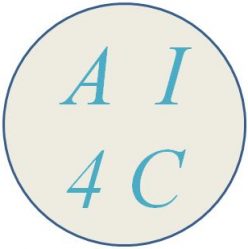When: 15 May 2019 at 10:30
Where: Campus Pierre and Marie Curie (Sorbonne University) room 105 of LIP6 corridor 25-26 1st floor.
Abstract
Learning techniques and data-driven approaches become relevant alternatives to classical model-driven approaches for a large number of application domains, including for the study of phenomena governed by physical laws. They offer new means to take advantage of the potential of observation and/or simulation big data.
In this talk, we will discuss data-driven strategies for the identification, simulation and reconstruction of dynamical systems with illustrations on ocean monitoring applications (e.g., reconstruction of the sea surface, maritime traffic surveillance). We will specifically address how neural networks can provide novel means for the data-driven identification of representations of dynamical systems, which are imperfectly observed (e.g., noisy data, partial observation, irregular sampling..). We might further discuss the relevance of dynamical system theory for the understanding of state-of-the-art neural networks, especially residual nets.
Background:
Ronan Fablet got an engineer degree from ISAE-SUPAERO (Institut Supérieur de l’Aéronautique et de l’Espace) Toulouse, France (1997), a MSC. In Applied Math from Univ. Paul sabatier, Toulouse, France (1997) and a the Ph.D. degree in signal processing and telecommunications from the University of Rennes/INRIA Rennes, France (2001). In 2002, he was a INRIA postdoctoral fellow with Brown University, Providence, RI, USA. From 2003 to 2007, he held a full-time research position with IFREMER Brest in the field of signal and image processing applied to fisheries science. In 2008, he joined the Signal and Communications Department, IMT Atlantique Bretagne-Pays de la Loire (formerly Télécom Bretagne), as an Associate Professor, and has been holding a full Professor position since 2012. He was a Visiting Researcher with Institut de Recherche pour le Deéveloppement/Instituto del Mar del Peru, Peru (Peruvian Sea Research Institute) in 2011 and a Visting Professor at IMEDEA (CSIC/UIB, Spain) in 2016. His main research interests are in data science with the main application field in ocean monitoring and surveillance. He has led national and international programs (e.g., EU STREP AFISA, ANR MN EMOCEAN, ANR ASTRID SESAME). He co-authored more than 200 articles and communications in peer-reviewed conferences and journals. Some references: (full paper available on my researchgate.net )
